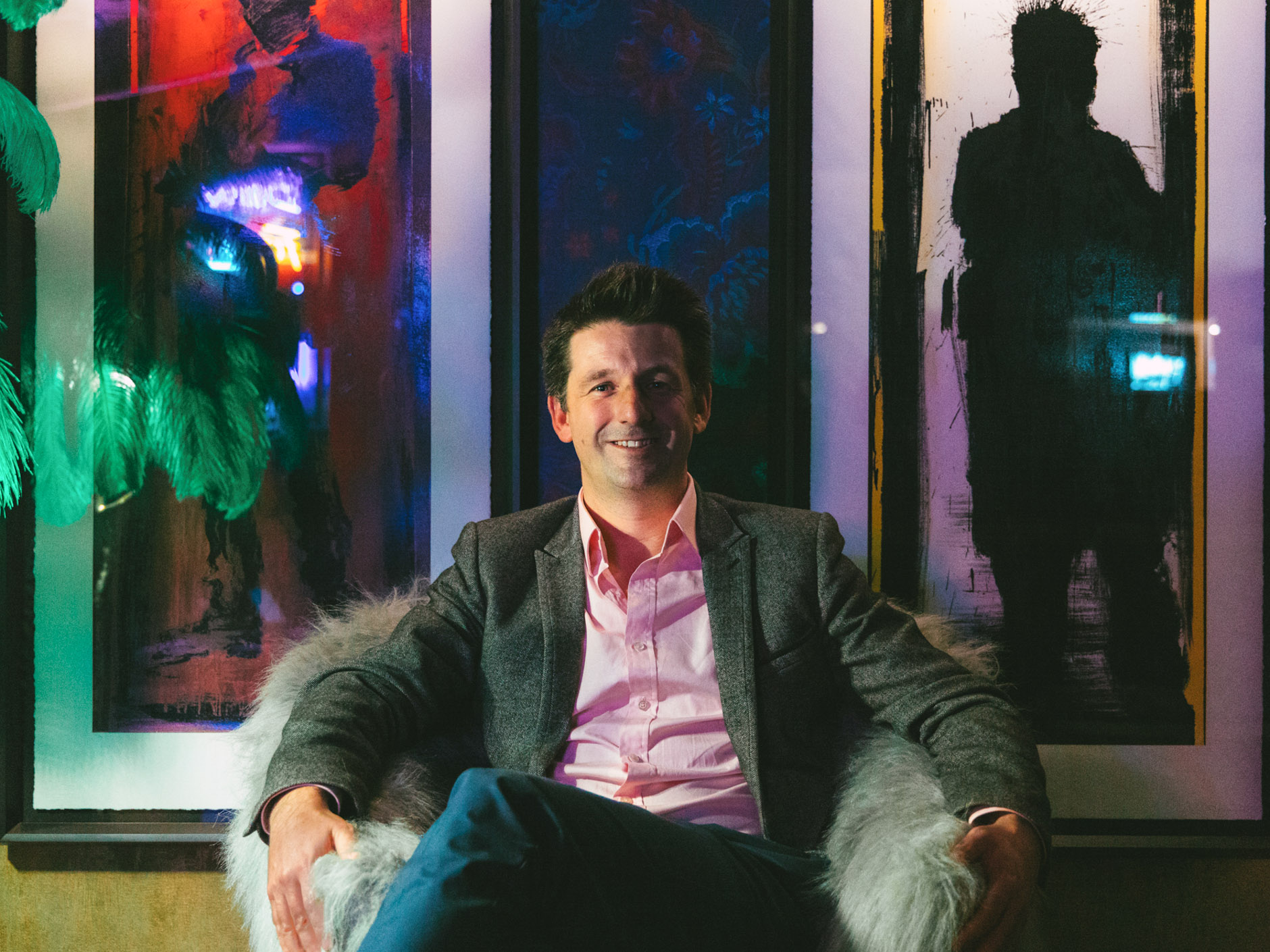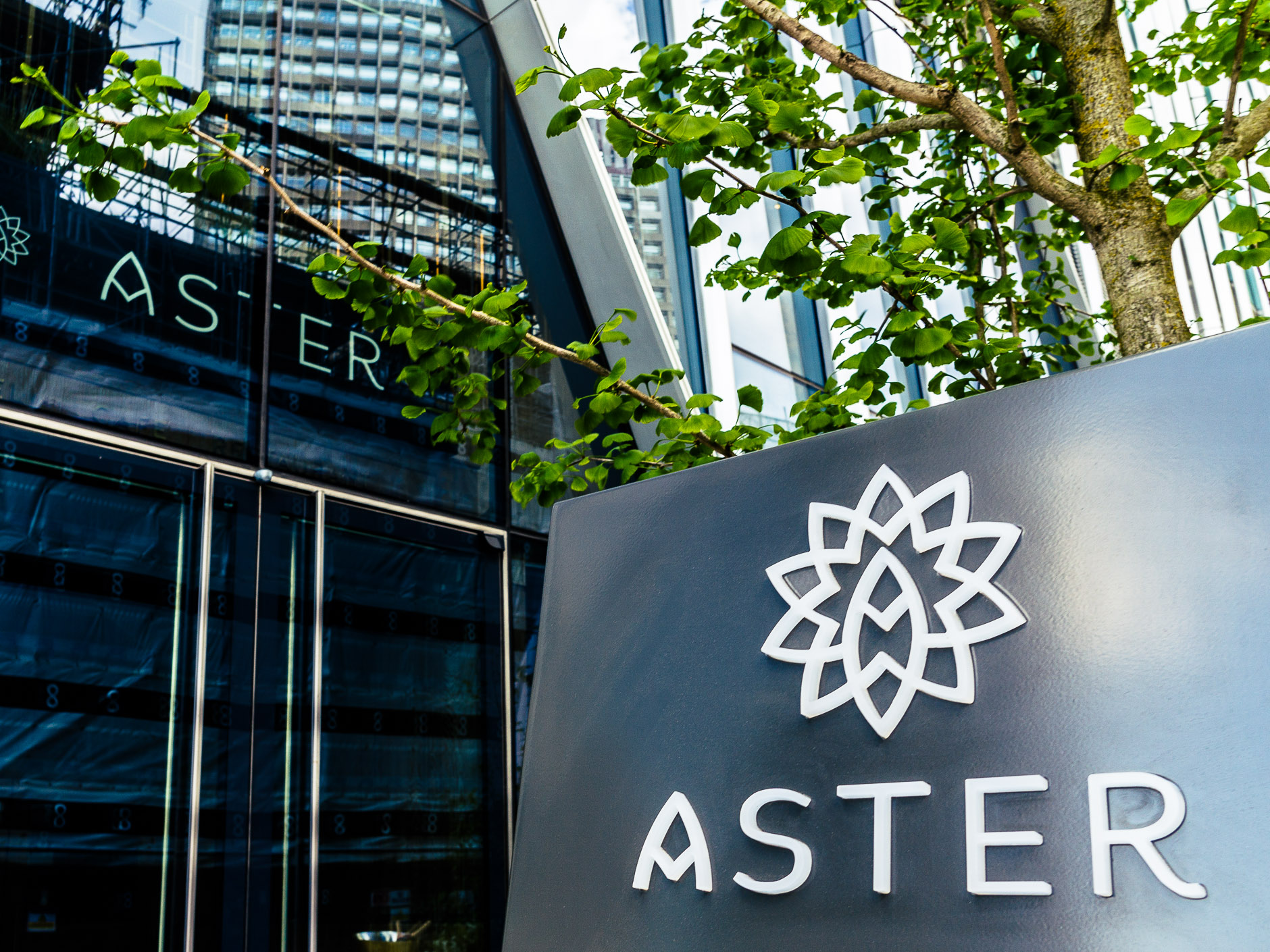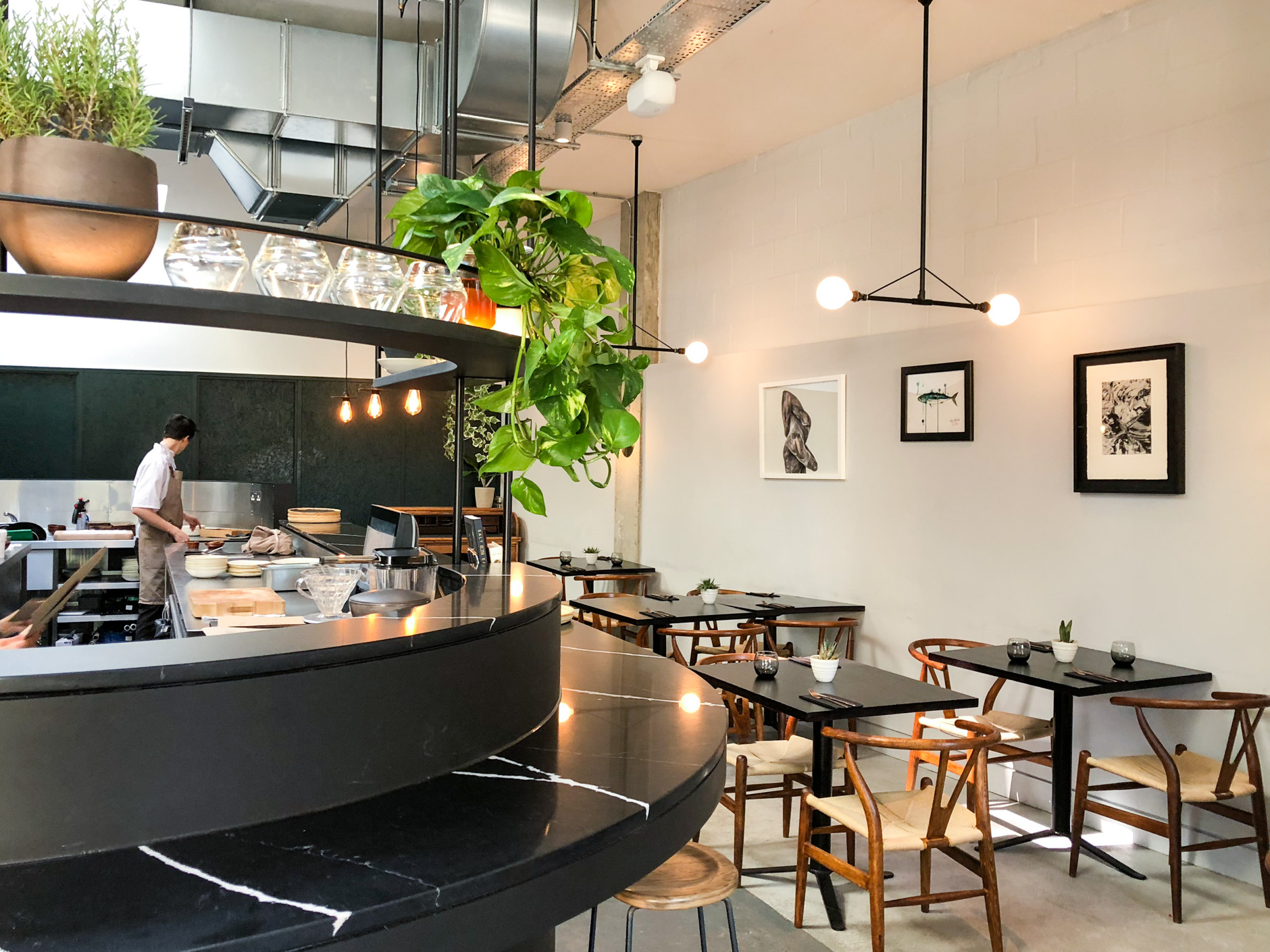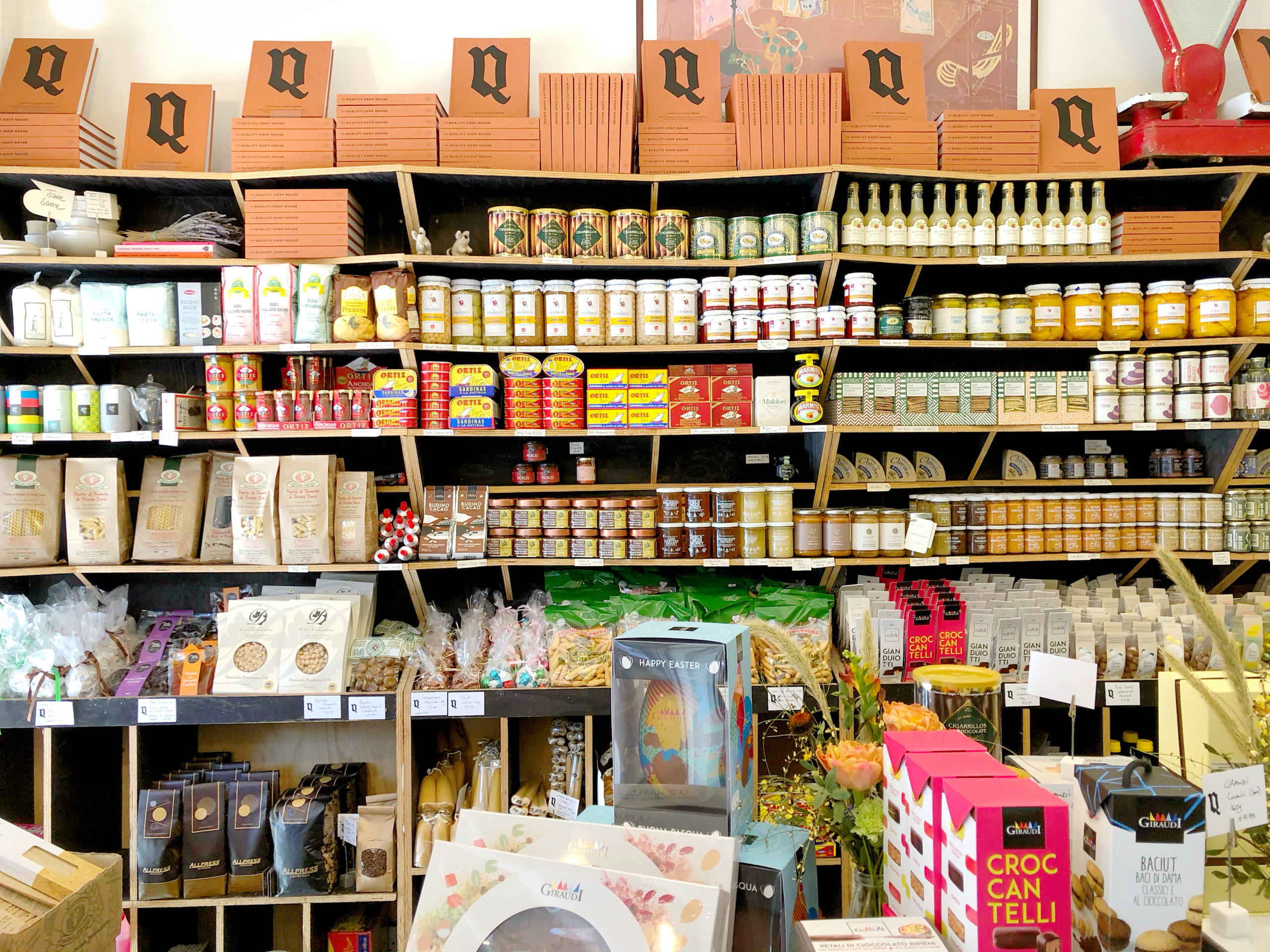James Bulmer is the founder and CEO of Wonderland Restaurants, a company offering immersive restaurant experiences including DC comic-themed Park Row and The Monarch Theatre in Piccadilly. Palate contributing writer Amanda David (AD) caught up with James Bulmer (JB) to find out more about his career, immersive dining and theatrical gastronomy.
AD: James, you previously worked with Disney and The Fat Duck. Tell me about that.
JB: I was fortunate enough to work with two of the greatest storytellers, in very different fields. The reason I went to Disney was strategic. I’d already started to think about how I could use global franchises and IP (Intellectual Property) to tell stories and offer different dining experiences using their brands. Disney are masters of creating memories and beautiful storytelling. I spent a couple of years investigating their brands and what could be done.
At that time I already knew Heston Blumenthal. Food and drink had never been seen as a mechanism to tell the stories, yet it’s the greatest medium because we all have such a deep-rooted connection with food: our childhood memories, our favourites and our food experiences as adults. There are also food and drinks that exist in this fantasy world that we all buy into and I was already going down this path of using these brands and trying to merge the two together. You know, almost like Wonka Vision: how can you reach into the screen and pull out food and drink from your favourite TV shows and movies, blur that line between the digital world and reality? It’s challenging because obviously you can’t enjoy food online but if you can use those wonderful stories to bring the food and drink alive, it’s incredible.
Working with Heston for such a long time was a massive eye-opener. He is a master of storytelling and his genius was that he looked outside of his industry for inspiration. Ferran Adria, who created spherification, was very scientific in the way he presented his pure olive to the diners. Heston came along and took spherification, then said, ‘Imagine you’re at the bottom of the ocean, there’s a mermaid swimming past, what’s the sensorial environment?’ – suddenly that spherification is a black pearl. What we’re trying to take to new levels now, The Fat Duck has been doing for 25 years: leaning into the fantasy world with a whimsical irreverence in the way that they play with food and drink.
I had a wonderful time running that; I was very proud and very lucky to be able to learn and watch how they developed in their heyday. Everyone always says that in 2002/3, before it won its third star, The Fat Duck was on a different plane. They put so much time into innovation. Heston understood how to create environments: he’d bring in a playwright, a theatre director, a neuroscientist, a psychologist – and they all came at the idea in very different ways. I wanted Wonderland to be a product of my 10 years of experience of these incredible traits that Disney and The Fat Duck Group had and take it further; hopefully it has shaped our thinking and the journey we’re on as a company.
We’re a restaurant; we don’t save lives but we do make sure that people smile, have a great time and leave blown away by a moment of magic
AD: Speaking of bringing in expertise, did I read somewhere that you have hired, or consulted, an illusionist?
JB: Yes, Chris Cox. I met him many years ago. I think he was Head of Magic at one point on JK Rowling’s The Cursed Child; so Harry Potter, then Warner Bros, it’s a very connected world. Again, he comes at things from a slightly different angle. Number one for us is always making sure that the food is top class in terms of taste and flavour but a lot of what we are trying to do is introduce these moments of wonderment, of being a kid. We’re launching a new menu in the main restaurant tonight with a lot more wonderment and storytelling, which means a lot more that can go wrong in the delivery and execution of the dish. I just told the team to enjoy it. We’re a restaurant; we don’t save lives but we do make sure that people smile, have a great time and leave blown away by a moment of magic and that’s very much what Chris has brought to us.
We have this new dish called A Rabbit from a Hat. We’ve designed a magician’s black top hat that sits over the plate with an invisible ignition built into the rim; below the rim there is black flash paper. So as you lay it on the table, you press the ignition and there’s a flash of flame and then you lift the hat to reveal a beautiful smoked rabbit terrine in mustard sauce – pulling a rabbit from a hat! My front of house staff are both excited and terrified to be performing this trick for potentially 200 diners tonight.
AD: How did you go about building the food concept?
JB: From a food perspective, I was very fortunate that my father was the Head of Michelin for 30 or so years. Food had always been a huge part of my life growing up; even as a child, I got carted off to restaurants most weekends while he was doing undercover reviews. Bizarrely, the first business I started had nothing to do with food. Then, in the early 2000s, chefs started to become kind of celebrities and I got to work with some of those guys. I think the minute you hit the food and drink world, you fall in love with it.
Luckily, because of my dad’s relationships, I had access to Heston and people like that. I love my food and my drink (I’m better at eating it than cooking it!) and I love the whole messing around with the science stuff in the lab. I brought some of the guys from The Fat Duck with me; we were all used to being an active part of the creative process, of the storytelling and how it connected to a dish. Then we found Karl O’Dell, the Executive Chef of The Monarch Theatre. He’s a completely unique chef in that he is very happy to take a non-chef’s opinion on food, and he was fantastic at taking my initial concepts and making them into incredible dishes. The only dish on the menu that I wasn’t involved with was the one that he cooked at his interview, the white chocolate scallop dish. I think it’s still my favourite today.
What was very fortunate for us was that once word got out within the industry about what we were doing and people got their heads around it, once we had the opportunity to explain to people that this was not just about Park Row but the vision of the whole company, we had some wonderful people join us. Our General Manager is from Gordon Ramsay, our Head Sommelier from Annabel’s, our Head Maitre D’ came from The Ivy, together with a number of people from The Fat Duck – then all of a sudden you have assembled people who are incredibly passionate about the industry and delivering an inspired dining story and experience.
AD: So where does The Monarch Theatre sit within Park Row?
JB: The Monarch Theatre is very much our halo; the food and drink is even more elevated, we throw everything at it. It’s my baby. It’s hugely complex behind the scenes; it was an opportunity to try and combine what we wanted Wonderland to stand for, which is theatrical gastronomy.
AD: It’s very difficult to review; you want to tell people about it but not spoil the experience.
JB: This was something we agonised over before we opened. Do we ban people’s mobiles? It’s quite challenging in this modern environment to tell a room full of adults that they can’t have their phones with them for the whole evening.
I think the minute you hit the food and drink world, you fall in love with it
AD: So what’s next for Wonderland?
JB: Well, phase one is very much looking at what we can improve and continually refining Park Row. As I said, we have a brand new menu in the main restaurant and we’re changing some of the dishes in The Monarch Theatre probably around August.
AD: And after that?
JB: We have a new concept in mind. There will never be a replica of Park Row in any other city around the world; we won’t tell the same story twice. The vision of the business is very much that we want to take more properties – and Warner Bros has a stack of them – and just continue to have fun with food and drink, tell different stories in different places.
AD: Are we talking about London? Can you give us any hints?
JB: It is London but I genuinely can’t tell you where. The London property market has really bounced back, which is great, but equally it’s got hugely competitive again. We have the ability to go to other cities but the reality is we’ve got to build a really strong foundation here. We want Wonderland to be the leading food storytelling business globally. We have the most incredible partner in Warner Bros; our challenge now is to hold that responsibility for all of the fans of these fabulous properties.
That’s the whole thing about imagination; it’s the most powerful thing, it’s what makes us unique as human beings and you can’t compete with it
AD: It’s close isn’t it, in a way?
JB: Very much so. We want to create theatrical dining experiences for everyone. In the same way that a father and son watching The Simpsons will laugh at the same joke for different reasons, we wanted to design an experience that works if you’re a superfan or if you have no interest in in the world of DC Comics at all; you’re both enjoying the same moment but for different reasons. What kept us busy during lockdown was having that opportunity to create layers and layers of storytelling that we’ve hidden throughout the space that we hope people will notice.
AD: I found that. I went with someone who knew much more about DC than I do. It was difficult to know what to expect beforehand as there isn’t really anything like this in London but the whole storytelling side was so much more subtle than I had expected. It’s more about the power of suggestion.
JB: That is absolutely it. That’s the whole thing about imagination; it’s the most powerful thing, it’s what makes us unique as human beings and you can’t compete with it. I can never build a world that will live up to your imagination. The beauty of it is that every single person around the table will have a slightly different experience depending on their level of knowledge; they’re going to have their own best experience but not at the expense of the other diners.
AD: When you first opened everybody was talking about the theatrical side but not so much about the food. Of course, it was early days and most people hadn’t actually been, but I wasn’t expecting the food to be as good as it was.
JB: You’ve probably just summed up my fears on that opening night. With somewhere like Planet Hollywood, they were hugely successful at one point but it started to tail off as there was no connectivity between the food and drink and the experience in that environment. For me, that was the central point; that the food and drink was going to be of a standard that had never been executed in these themed worlds. That was a risk. When you do investor rounds to raise money and a number of people point out that you want to put Batman, a family entertainment brand, with high-end food? When you’re so focused and really believe that you’ve got something, it’s only on that opening night that you wonder if you’ve really messed up.
AD: I felt that was part of the success. There are so many family-focused, fast-food themed places but none where adults can be a kid for an evening and still get to eat grown-up, sophisticated food.
JB: That’s music to our ears. I think that’s our responsibility as we grow, to ensure that the food and drink is constantly the central attraction. Everything else is there to complement it. Everything in the Monarch, the content around the walls and the narration, should complement and build around the dish that’s placed in front of you, not the other way round. I have a bell graph that I use with the kitchen team: one side is taste and flavour and the other side is story. I always say that of course on top of that graph is the most beautiful place to be but if you’re ever going to fall from that central point, we make sure that we always fall off on the side of taste and flavour.
AD: I’m sure the pandemic must have caused a lot of problems for you but do you think it may also have made people more open to, and more hungry for, this kind of escapist, indulgent experience?
JB: I 100% agree that if we had opened pre-pandemic, I think we would have had a very different reception. Two years of sitting at home has left people with a real desire to reconnect with human beings. Even pre-pandemic, immersive experiences were becoming more popular but I think it has accelerated certain trends. We didn’t set out to create an Instagram restaurant – although I think I’ve seen everything in our restaurant posted on Instagram and it’s great that people feel they want to share those experiences – but we created those moments to be shared in real life, when you’re in a group at a table and you just laugh.
We opened literally three days after the restrictions were lifted, and I still remember the fear of filling a room with people, but it was great to see how people came back. Consumers everywhere are looking for added value, for a story; they’re assuming that the food will be great, that should be a given, but they are asking what else can you deliver to make my night memorable.
AD: One final question. Can you give me three dishes you have eaten recently, in restaurants other than your own, which have been memorable?
JB: That’s tricky, as there was a long period recently where I didn’t eat out much at all apart from in my own restaurants! I remember the Nobu black cod was always my favourite; I would deliberately choose there for meetings just so I could eat that dish. Atul Kochhar when he had Benares had an exquisite dish which I ate so many times – it was a John Dory with roasted tomatoes which I believe he served in his first appearance on the Great British Menu. And finally, it has to be the meat fruit at Dinner by Heston. It beautifully combines history, storytelling and great taste and flavour.
This interview took place in April 2022 and was published on 1 May 2022.






